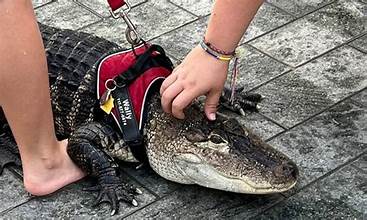The allure of owning exotic pets—ranging from vibrant reptiles to majestic big cats—has captivated many enthusiasts worldwide. However, the legality of keeping such animals varies significantly across different regions, influenced by concerns over public safety, animal welfare, and ecological balance. This blog post delves into the legal landscape governing exotic pet ownership in various U.S. states and countries, highlighting key regulations and considerations for prospective exotic pet owners.
United States: A Patchwork of State Regulations
In the U.S., exotic pet ownership laws are primarily determined at the state level, resulting in a diverse regulatory landscape:
- Comprehensive Bans:
Approximately 20 states, including California and New York, enforce strict prohibitions on private ownership of certain exotic animals. These bans typically cover wild cats, large carnivores, reptiles, and non-human primates, classifying them as “dangerous animals.”
- Partial Bans and Licensing Requirements:
States like Florida and Texas allow the ownership of specific exotic species, such as [specific species], under stringent regulations. These regulations often require permits, adherence to caging standards, and liability insurance.
- Minimal Restrictions:
A few states, such as Alabama, Nevada, North Carolina, and Wisconsin, have relatively lax laws regarding exotic pet ownership, with no comprehensive statewide bans. However, local ordinances, such as [specific ordinances like zoning restrictions, animal welfare laws, or exotic pet bans in certain cities], may impose additional restrictions.
Case in Point: Alligator Ownership
Recent incidents underscore the complexities of exotic pet laws. In Michigan, where owning an alligator is legal, an alligator was discovered in a motel room after its owner, who was in town for educational assemblies on exotic animals, checked out. The owner claimed to be unaware of the alligator’s escape, which led to [specific consequences], highlighting the challenges in managing such pets.

International Perspectives: Varying Degrees of Regulation
Globally, countries adopt diverse approaches to exotic pet ownership:
- United Kingdom:
The Dangerous Wild Animals Act requires individuals to obtain a license to own certain exotic species. This ensures that owners meet specific safety and welfare standards. Failure to comply can result in fines and the confiscation of the animal.
- European Union:
Many EU countries have stringent laws regulating the ownership of exotic pets. These laws aim to protect native wildlife, ensure animal welfare, and safeguard public health. However, the definition of ‘exotic’ varies between countries, leading to different regulations.
- Australia:
To protect its unique ecosystems, the country imposes strict biosecurity laws, generally prohibiting the importation and ownership of exotic animals.
Key Considerations for Prospective Exotic Pet Owners
Before acquiring an exotic pet, it’s crucial to:
- Research Local Laws:
Regulations vary by country, state, county, and city. Always consult local authorities, such as animal control offices, wildlife agencies, or city councils, and conduct thorough research, including reading local ordinances and laws, to ensure compliance. The more you know, the better prepared you’ll be for the responsibilities of exotic pet ownership.
- Obtain Necessary Permits:
Some regions require permits or licenses for certain species, often accompanied by inspections and fees.
- Understand the Species’ Needs:
Exotic animals often have complex care requirements that can be challenging to meet in a domestic setting. Therefore, it is essential to be empathetic and responsible in understanding and meeting these needs.
- Consider Public Safety and Ethical Implications:
Owning exotic pets can pose significant risks to public safety and raise ethical questions about animal welfare and conservation. Therefore, it is crucial to be fully aware of these potential risks before considering exotic pet ownership.
Conclusion
The legal landscape surrounding exotic pet ownership is intricate and varies widely across jurisdictions. Prospective owners must diligently research and adhere to applicable laws and regulations to ensure the animals and the community’s safety and well-being. Responsible ownership and a thorough understanding of legal obligations are essential for those considering welcoming an exotic pet into their lives.j





Pingback: Best Way To Make Your Own Exotic Pet Enclosures - Positvley Pets